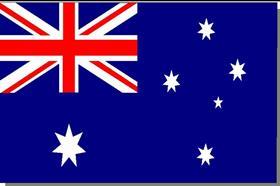
Australian fruit exporters have fallen victim to their federal government’s efforts to rein in spending in its recent budget, which was announced last week.
While a controversial 40 per cent tax on the resources industry at the top end of the economy may have grabbed the budget headlines, there was also bad news for the lower end, with the popular Export Marketing Development Grants (EMDG) scheme cut by A$50m.
The EMDG scheme is a key Australian government financial assistance programme for current and aspiring exporters. Administered by Austrade, the scheme supports a wide range of industry sectors and products, including horticulture.
In 2009/10, the EMDG scheme provided for A$200m, and even at that level it amounted to an estimated shortfall of A$30m. The A$50m cut means it could be A$80m short of what is required next year.
According to the Australian Horticultural Exporters Association, the federal government move has left many exporters “disillusioned”, with several indicating that they will simply stop investing to develop their overseas markets.
While much of Australia may have escaped the impact of the global financial crisis, exporters have been hard hit, with the surge in the value of the Australian dollar undermining overall competitiveness.
“The horticultural industry urgently needs some certainty from an export support scheme that is fully funded and ongoing, and that instills confidence in the business sector,” said the AHEA in a press statement. “To do otherwise shows the federal government’s short-sighted policy, which will erode Australia’s future export trade.”
The AHEA sees the EMDG cut as consistent with the government’s policy to remove support to horticultural exports for compulsory certification and inspection, as evinced by its effort to end the 40 per cent subsidy on Australian Quarantine and Inspection Service (AQIS) charges last year.
The AHEA statement branded the federal government policy “sinister”, because it is driving Australia towards dependence on food imports, decimating the horticultural industry and forcing the closure of businesses and the loss of more than 70,000 jobs across the country.
“It is a no-brainer to see that investment in horticultural exports would be a far better way to stimulate a budget surplus than taxing the golden goose and slashing programmes that are so vital in assisting our small horticultural exporters,” said CEO of AHEA Max Summers.



